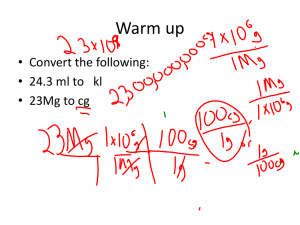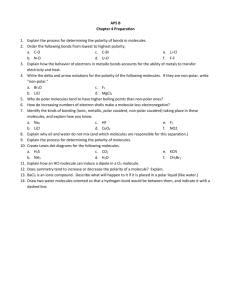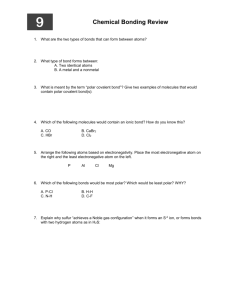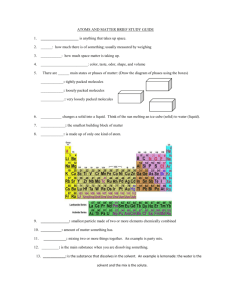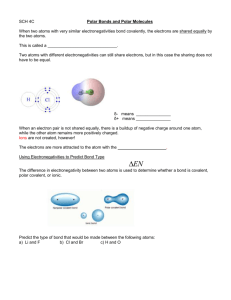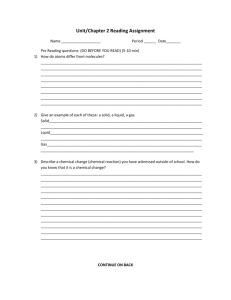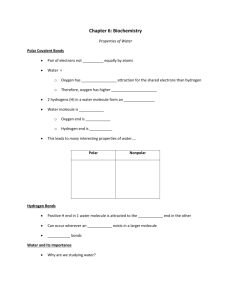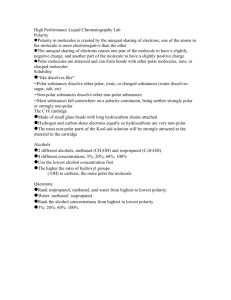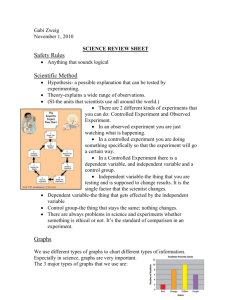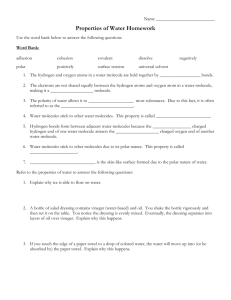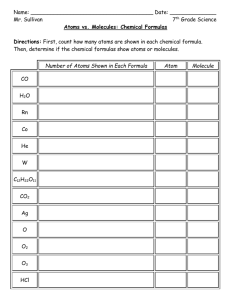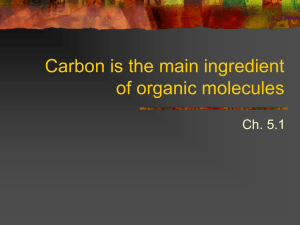File
advertisement
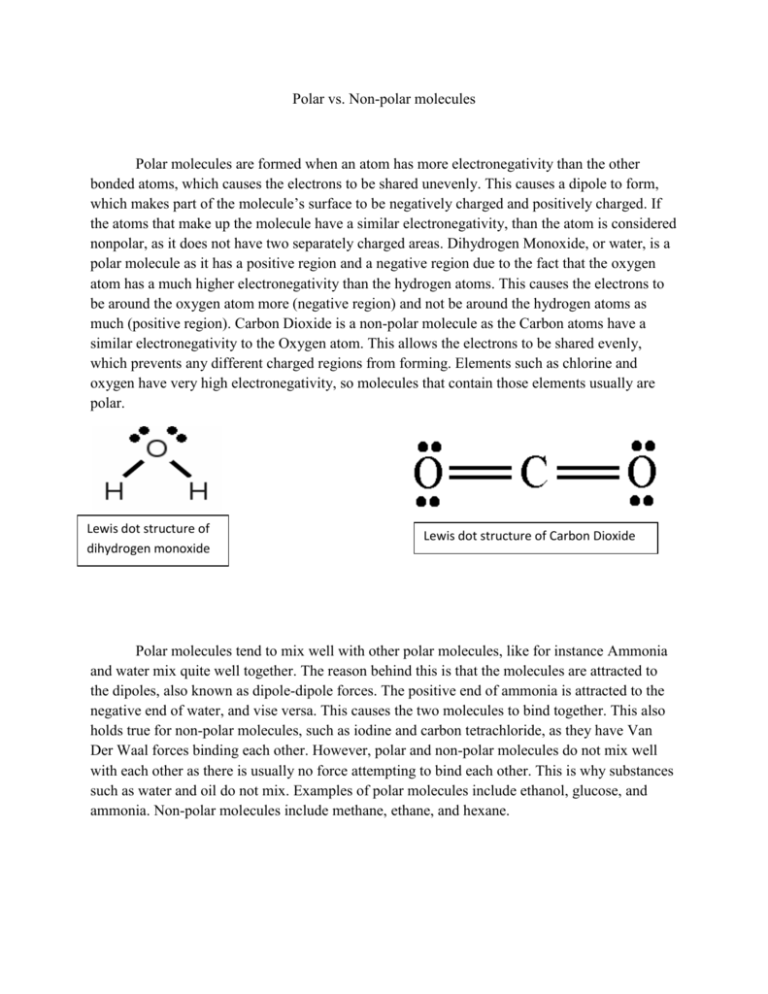
Polar vs. Non-polar molecules Polar molecules are formed when an atom has more electronegativity than the other bonded atoms, which causes the electrons to be shared unevenly. This causes a dipole to form, which makes part of the molecule’s surface to be negatively charged and positively charged. If the atoms that make up the molecule have a similar electronegativity, than the atom is considered nonpolar, as it does not have two separately charged areas. Dihydrogen Monoxide, or water, is a polar molecule as it has a positive region and a negative region due to the fact that the oxygen atom has a much higher electronegativity than the hydrogen atoms. This causes the electrons to be around the oxygen atom more (negative region) and not be around the hydrogen atoms as much (positive region). Carbon Dioxide is a non-polar molecule as the Carbon atoms have a similar electronegativity to the Oxygen atom. This allows the electrons to be shared evenly, which prevents any different charged regions from forming. Elements such as chlorine and oxygen have very high electronegativity, so molecules that contain those elements usually are polar. Lewis dot structure of dihydrogen monoxide Lewis dot structure of Carbon Dioxide Polar molecules tend to mix well with other polar molecules, like for instance Ammonia and water mix quite well together. The reason behind this is that the molecules are attracted to the dipoles, also known as dipole-dipole forces. The positive end of ammonia is attracted to the negative end of water, and vise versa. This causes the two molecules to bind together. This also holds true for non-polar molecules, such as iodine and carbon tetrachloride, as they have Van Der Waal forces binding each other. However, polar and non-polar molecules do not mix well with each other as there is usually no force attempting to bind each other. This is why substances such as water and oil do not mix. Examples of polar molecules include ethanol, glucose, and ammonia. Non-polar molecules include methane, ethane, and hexane.
